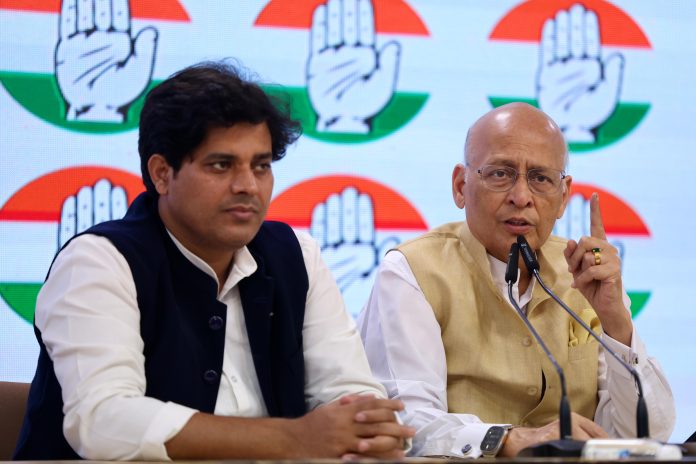– Abdul Bari Masoud
New Delhi: Congress welcomed the Supreme Court’s interim relief on the Waqf Act, saying the law aims not to improve but to control and infiltrate institutions.
At a press meet at AICC headquarters, Dr. Abhishek Manu Singhvi, AICC Law and Human Rights Dept. Chair and MP, along with MP Imran Pratapgarhi, thanked the court for its detailed interim order, pending further hearings.
Dr. Singhvi said the government’s reform claim is fake. He called it “retaliation in disguise,” planned and timed politically, and legally questionable.
He said the Waqf Amendment Act isn’t about better governance. It’s about erasing autonomy and increasing control, hiding behind neutral language.
He warned that the law is reducing religious freedom to state-run rules and is redrawing community rights with bureaucracy.
Dr. Singhvi said the law isn’t about strengthening institutions but about entering, controlling, and shutting them down.
He stressed that this isn’t a community-specific issue. Congress is defending a constitutional value, not just one group.
He said Article 26 rights shouldn’t be sacrificed for majority convenience.
He warned, “Today it’s Waqf, tomorrow it could be your shrine, faith, or voice.”
He said the law isn’t just illegal but morally empty. It attacks religious freedom’s core.
Dr. Singhvi called the Act an attack on autonomy, identity, and constitutional principles. He said Article 26 can’t be cut off for efficiency.
He added that a token Muslim on the board isn’t real representation, but state appropriation.
He emphasized this isn’t only about Muslims. It signals minority institutions are open to state control.
He warned again that today it’s Waqf, but tomorrow it could be other faiths and voices.
He said the Constitution isn’t a buffet to choose preferred rights and ignore others.
He explained that autonomy without representation is fake. Representation without autonomy is useless.
He said the Act fails constitutional equality and should be struck down. It reduces faith to forms and identity to blame.
Imran Pratapgarhi also welcomed the interim order. He said the law was forced through Parliament, ignoring opposition input during JPC and House debates.




